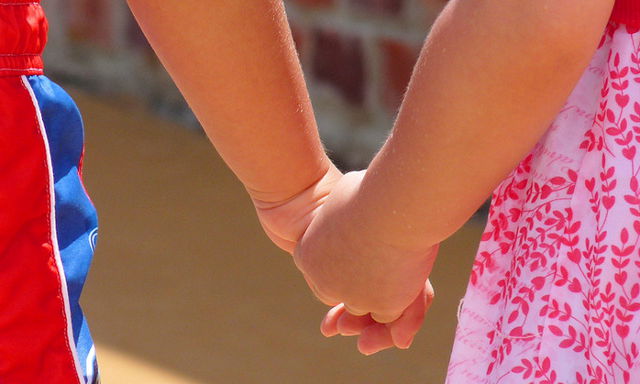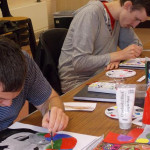This in from Janet Knight on behalf of Barnados. Ed
A two-year pioneering pilot scheme to improve the lives of families of prisoners on the Isle of Wight has been hailed a success, in a report out yesterday (Wednesday).
A full evaluation of the Barnardo’s Community Support for Offenders’ Families (CSOF) programme, finds that life has measurably improved for parents and their children.
Better support for families
The aim of the programme run by Barnardo’s and the National Offender Management Service, (NOMS) is to bring local services together to coordinate better support for families, who can feel isolated, stressed and stigmatised, as well as being economically and socially deprived when a family member is serving a prison sentence.
In yesterday’s report that covers pilot schemes on the Isle of Wight, Bristol and South Wales, nine out of ten families who wanted to improve contact between the offending parent and their child said the scheme had achieved this.
While 75 per cent said they had better access to support as a result of the programme and 74 per cent of parents said stress had been reduced.
All felt relieved at having someone to speak freely to without being judged.
“Emma’s” story
Islander and mother of three “Emma”, whose husband is in prison, says they were a family in crisis before the programme.
She says:
“We were a totally dysfunctional family. We all felt angry and confused. I think I would have gone under, lost my job and the house, but with the support we’ve been given we are on a good level. This service is the best thing that could have happened to us.”
Children isloated
Children who have family members in prison are some of the most overlooked and isolated in the UK, and have disrupted childhoods that can ruin their life chances.
Around 200,000 children in the UK have a parent in prison. On the Isle of Wight, of the 1200 children born each year, 84 will experience the imprisonment of a parent during their school years, which is around 7% of all children.
Evidence shows that contact between prisoners and their relatives is crucial to reducing reoffending.
Through the programme, Emma and her children have received practical support and help with anger management issues.
“The programme brought us all back together as a family”
Emma explains:
“It was so bewildering for the children. They didn’t understand what was going on but thanks to this programme they were able to talk to someone about how they were feeling.
“It can be very isolating for families when a parent is in prison. The children have not done anything wrong, nor have the wives or partners but they are the ones left on the outside with everyone judging them. I didn’t know anyone else in a similar situation but all of a sudden we had someone to talk to who listened, understood and was non-judgemental. The programme brought us all back together as a family.”
Now Emma, who sits on the CSOF steering group, helps to deliver training to professionals on the Island, along with providing support to other families going through the process.
Barnardo’s CSOF Senior Practitioner in the South East, Susie Bryant works closely with the 23 Island families that have been helped by the programme.
Help with practical issues
Susie says:
“Barnardo’s services work hard to reduce the isolation which children of prisoners face within their community. The service helps families with practical issues, support with understanding the journey through the criminal justice system as well as supporting emotional wellbeing, building family resilience and help children keep in contact with their parent in prison.
“As well as improving family functioning it helps children feel better about their situation. It reduces children’s anger, shame and anxiety levels and increases self-confidence.”
Barnardo’s will continue to run the scheme on the Isle of Wight and roll out more across the UK in the next two years.
Image: richardstep under CC BY 2.0




